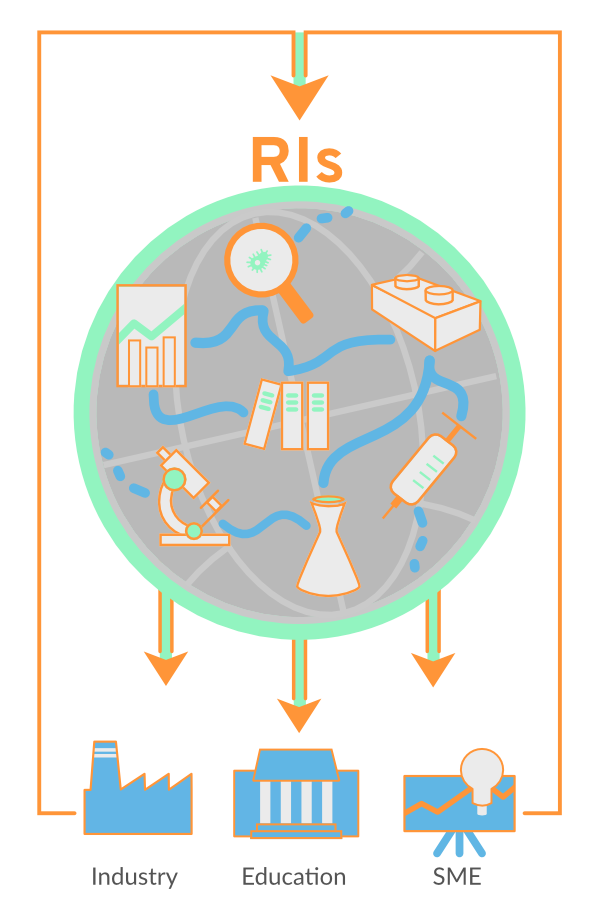About research infrastructures

About research infrastructures
The term research infrastructure refers to an organisation that provides facilities, resources, and services to research communities to support scientific research and to foster innovation.
The services such research infrastructures provide are diverse and can include:
-
-
- Specialised scientific equipment or instruments,
-
- Collections and archives (from biological materials to manuscripts),
-
- IT or communication services etc.,
-
- Data or data sets.
-
A research infrastructure can be single-sited, distributed (e.g. across a network of hosting countries or institutions), or virtual (offering web-based or virtual research environments and services). A key value of research infrastructures is that they are open to external users, fostering collaboration between scientists from different countries, disciplines, and economic sectors.
One of the European Commission’s key initiatives and strategies center around the development and better use of pan-European, intergovernmental, and national research infrastructures. The advantages of this strategy include – amongst others – an organised and transparent system to share knowledge; pooling of data, facilities, equipment; and avoiding duplication of effort and resources. Bioindustry 4.0 as a project represents the collaboration of 6 major European research infrastructures and their efforts to accompany digitalisation across a diverse industrial sector.
